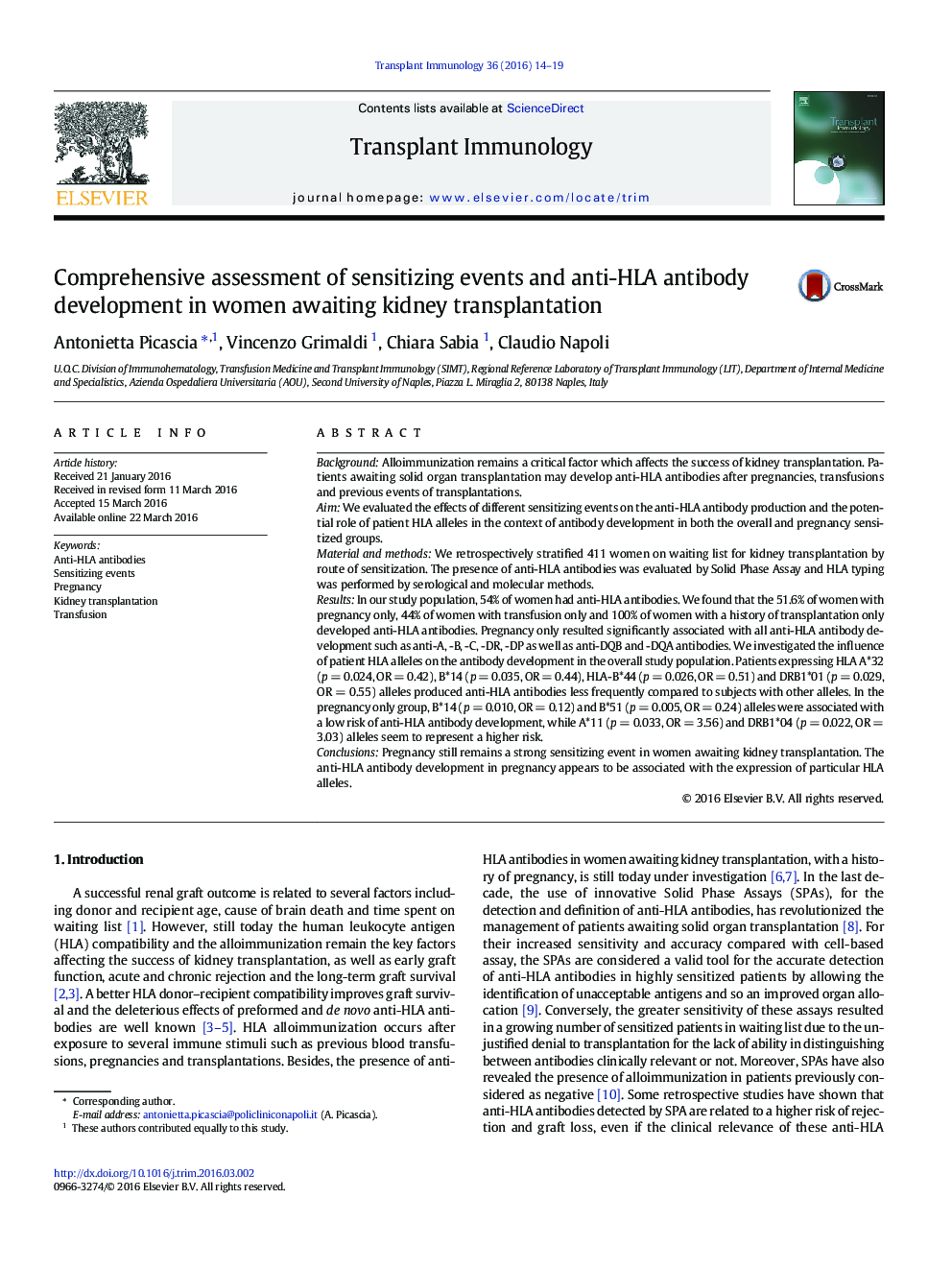| Article ID | Journal | Published Year | Pages | File Type |
|---|---|---|---|---|
| 3391983 | Transplant Immunology | 2016 | 6 Pages |
•HLA alloimmunization occurs after exposure to several sensitizing events.•Pregnancy is a strong sensitizing event leading to anti-HLA antibody production.•Anti-HLA antibodies detection is crucial in the pre- and post-transplant monitoring.•The role of HLA alleles in the context of antibody development was investigated.
BackgroundAlloimmunization remains a critical factor which affects the success of kidney transplantation. Patients awaiting solid organ transplantation may develop anti-HLA antibodies after pregnancies, transfusions and previous events of transplantations.AimWe evaluated the effects of different sensitizing events on the anti-HLA antibody production and the potential role of patient HLA alleles in the context of antibody development in both the overall and pregnancy sensitized groups.Material and methodsWe retrospectively stratified 411 women on waiting list for kidney transplantation by route of sensitization. The presence of anti-HLA antibodies was evaluated by Solid Phase Assay and HLA typing was performed by serological and molecular methods.ResultsIn our study population, 54% of women had anti-HLA antibodies. We found that the 51.6% of women with pregnancy only, 44% of women with transfusion only and 100% of women with a history of transplantation only developed anti-HLA antibodies. Pregnancy only resulted significantly associated with all anti-HLA antibody development such as anti-A, -B, -C, -DR, -DP as well as anti-DQB and -DQA antibodies. We investigated the influence of patient HLA alleles on the antibody development in the overall study population. Patients expressing HLA A*32 (p = 0.024, OR = 0.42), B*14 (p = 0.035, OR = 0.44), HLA-B*44 (p = 0.026, OR = 0.51) and DRB1*01 (p = 0.029, OR = 0.55) alleles produced anti-HLA antibodies less frequently compared to subjects with other alleles. In the pregnancy only group, B*14 (p = 0.010, OR = 0.12) and B*51 (p = 0.005, OR = 0.24) alleles were associated with a low risk of anti-HLA antibody development, while A*11 (p = 0.033, OR = 3.56) and DRB1*04 (p = 0.022, OR = 3.03) alleles seem to represent a higher risk.ConclusionsPregnancy still remains a strong sensitizing event in women awaiting kidney transplantation. The anti-HLA antibody development in pregnancy appears to be associated with the expression of particular HLA alleles.
